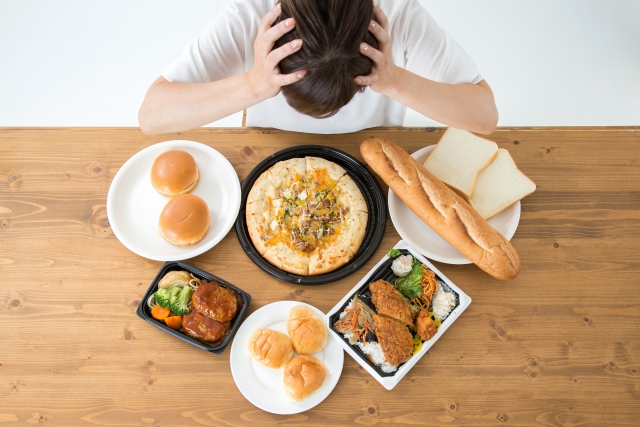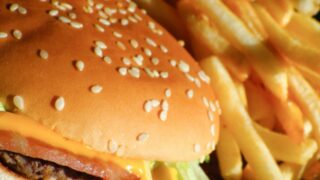When dieting, it can be tough to endure hunger, making it feel hard to continue the diet. However, your hunger might be due to the imbalance in your usual diet.
In this article, we will discuss hunger management strategies for those who can’t endure hunger. Let’s adjust to a sustainable diet rather than a restrictive one.
Reasons for Feeling Too Hungry
There are three main reasons why you might feel excessively hungry while on a diet.
The first reason is eating too little

Many people reduce the amount of food they eat all at once when they start a diet. However, the sudden decrease in energy intake, which was previously high, causes the body to run out of energy. When energy is in short supply, the body feels a strong hunger and turns to muscle for energy as a source of energy to move the body.
Furthermore, your body enters “energy-saving mode” in an attempt to conserve energy, leading to a decrease in metabolism. Instead of simply reducing food intake because you want to lose weight, try to aim for balanced meals three times a day by consuming more calories than your basal metabolic rate.
The second is nutritional imbalance

Even if you eat three solid meals, if you are biased toward only carbohydrates or high-fat meals, your body will not get the nutrients it needs. For example, if you are deficient in iron, you will want to eat sweet foods such as chocolate, and if you are deficient in potassium, you will want to eat snacks and junk food.
It is said that a balance of carbohydrates, fats, and proteins is important, but vitamins and minerals are also important nutrients to enhance weight loss. These help burn fat, so it is important to maintain a good balance of nutrients to make it easier to lose weight.
The third is a sudden drop in blood glucose levels

Blood glucose levels rise rapidly when carbohydrates are ingested on an empty stomach. The elevated blood glucose level is then rapidly lowered by the hormone insulin. When blood glucose levels drop, it can lead to a strong feeling of hunger, irritability, and difficulty concentrating.
To avoid blood sugar spikes and drops, be careful not to skip meals or leave too much time between meals.
Measures to prevent immediate hunger
If you are still hungry after remedying the three causes of hunger listed above, please try the methods we are about to share with you.
Do not overeat low-carbohydrate foods
Low carbohydrate foods are low in sugar content and therefore lack energy. If you continue that diet, your appetite will explode at some point, so take the right amount of carbohydrates.
Increase chewy foods
Vegetable juices and breads with little chewing do not stimulate the satiety center and cause overeating. Increase chewy foods such as brown rice or cereal rice rather than white rice, rye bread or whole grain bread rather than bread, root vegetables, salads, and seaweeds rather than vegetable juice.
Get more sleep
Less sleep reduces “leptin,” a hormone that suppresses appetite and makes you hungry. Try to get at least 7 hours of sleep.
Don’t eat while using your phone
Many people eat while playing with their cell phones. The result is a negative spiral of chewing less, eating sloppily, and forgetting how much you have eaten. When eating, concentrate on the meal in front of you and savor every bite.











